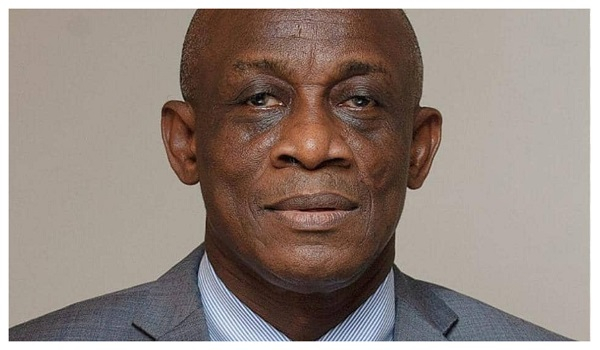The recent spate of attacks and killings in various villages in Plateau State has claimed no fewer than 41 lives and left numerous people wounded within a week.
Hundreds of houses were razed down by the perpetrators and hundreds of people have been displaced by the attacks within the said period.
The brutal assaults showed no regard for human life, targeting men, women, and children indiscriminately. The attacks often occur at night or through ambushes, fuelled by longstanding tensions between farming and herding communities that frequently accuse each other of responsibility for the atrocities. The affected areas include Bassa, Riyom, Bokkos, and Mangu local government areas.
The latest attacks occurred on Tuesday in two communities of Mangu LGA where 20 persons were killed in brutal attacks in the areas.
In the early hours of Tuesday, June 8, gunmen attacked Bauda community in Langai District of Mangu LGA, killing seven persons and injuring others. During the attack, about 61 houses, including COCIN LCC Bauda, were razed to the ground.
On the same day, around 8 pm, gunmen attacked the Chinchim community, located in Mangu District, killing at least eight persons. This incident has generated tension within and outside Mangu.
Confirming the Chinchim incident, Mangu LGA chairman, Emmanuel Bala, condemned the attack, stating that eight people were killed. He added that seven people were killed in Bwai District on June 8 and have been given a mass burial.
The LG chairman said, “What we have is a total of 8 dead, and the attack took place at about 8:00pm. The herders attacked a place in Mangu LG at the outskirts. People were in their houses when they were attacked and mostly knives were used to destroy them.
“The attacks took place in two places, the day before yesterday (Monday), seven people were killed and we had the mass burial yesterday (Tuesday), then the same yesterday, the attack at Chinchim community took place and eight people precisely were killed.
“There is another village in Langai town, Gindiri axis. There was an attack and they also burnt down houses and about five people were confirmed dead.”
Abubakar Garba, secretary of Gan Allah Fulani Development Association of Nigeria (GAFDAN), denied the allegation by the chairman and called on security officials to investigate the perpetrators of the act.
“Honestly, we are unaware of any attack but we condemn any act of criminality. We are a peaceful community, law-abiding citizens who respect the law. As such, we wouldn’t take law into our own hands. None of our members would recklessly launch an attack on any tribe. We strongly condemn this attack and urge security agencies to investigate,” the secretary said.
On June 9, gunmen stormed the Gyenbwas community in Langai District, killing three persons and burning down 96 houses, including the Central Jama’atu Nasril Islam (JNI) building.
Residents alleged that the perpetrators looted food, mattresses, cattle, and other valuables. Alhaji Yakubu Umar, the traditional ruler and Madugun Langai, confirmed the incident. The community accused the Berom ethnic group of launching the attack, but the group denied the accusations.
In related incidents, the acting chairman of Mwaghavul Youth Movement (MYM), Mangu Halle District, Mr Mangs Fwangkat Isa, disclosed that on Sunday, June 7, a member was ambushed, and three others injured. On Monday morning, two members of the group were killed.
According to Daily Trust reports, on June 7, four persons were killed around Uwok-Ishe community of Kekkek District in Bassa LGA, with two others injured, including farmers and herders on their way to mining sites.
On June 8, the state Chairman of GAFDAN disclosed that two herders were killed around Ancher in Bassa. Earlier, on June 3, three persons were reportedly killed in Kwall District in a night attack in Bassa, and another attack was launched in Bachi community of Riyom LGA, killing a young boy and injuring one other.
State government, police, OPSH mum
Our correspondent reports that within a period of one week when communities experienced these incessant attacks and killings, the state government has not commented or issued statements regarding the attacks. Joyce Ramnap, the Commissioner for Information and Communication, has yet to respond to an inquiry by Daily Trust.
Both the spokespersons of the Operation Safe Haven (OPSH), Major Samson Zhakom and State Police Command, DSP Alabo Alfred have yet to respond to messages by our correspondent on the spate of attacks and killings in the state.
Security experts offer solutions
Security experts in the state have offered solutions to the lingering attacks and killing of innocent lives in the state.
Retired police superintendent Bulus Ajiji said the breakdown in community cooperation is equally to blame. He argues that the reluctance of residents to provide actionable intelligence enables criminal networks to thrive.
He said, “The reality is open. Everybody knows that the issue of security is everybody’s business. Inability to provide security information at the time needed to curtail the ugly from happening made most of the failures. If the public will realise that security is the responsibility of everyone, we will overcome the problem. Secondly, some communities even shield criminals knowingly or unknowingly. If my son is misbehaving, doing what is contrary, and I am aware and you are aware, I may decide to compromise, I may not want the security know, these are some of the problems preventing the fight against criminality.”
Mr Joel Baba Alfa, a peace manager and a lecturer at the Department of Conflict, Peace and Management Studies, explained some of the factors that hinder restoration of peace in the state. He said the lack of implementation of the commission of inquiry’s recommendations, transparency, and sincerity of purpose, and understanding the root cause of the conflict have been the major hindrances to tackling insecurity in the state.
However, he noted that while most solutions provided by peace studies have failed to address the Jos conflict, he believes that other approaches, which he described as “rugged” if implemented, could help restore peace in the state.
The university lecturer said one way to address this problem is for “the authorities to take decisive measures by targeting the perpetrators’ hideouts rather than waiting until a community is attacked. These attackers are often outsiders. A well-organised task force that pursues the attackers would be beneficial. Authorities should take the fight to the attackers’ hideouts and dislodge them. The war should be taken to their turf.”
“Secondly, there should be a community peace force. This peace force could take the form of a vigilante group comprising members from all warring parties, led by a respected community member or security personnel. They should not be accountable to conventional security agencies. The peace force, familiar with the community’s nooks and crannies, can help ensure peace in the state, as members know each other.
“Thirdly, all community members, irrespective of their religion or belief, could take an oath on their respective holy books or sacred texts. People often hold these texts in high reverence, and swearing on them can foster a sense of accountability and commitment to peace. This approach may help promote trust and cooperation among community members,” the university lecturer added. Mr Joel further said, “Communication is key in addressing this problem. When herders report cattle killings, authorities should publicly disclose the incidents. Similarly, when farms are destroyed, these incidents should be documented and communicated to the public and relevant parties. Transparency can help reduce tensions. Responsible reporting is also crucial; however, the media should avoid mentioning the identity or religion of victims, as this can exacerbate the issue.”












